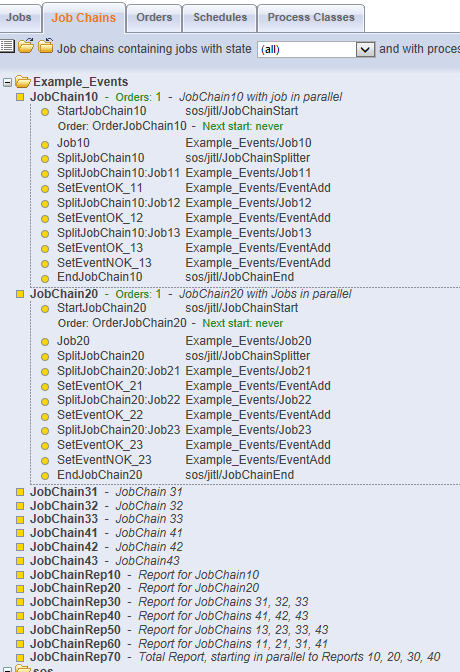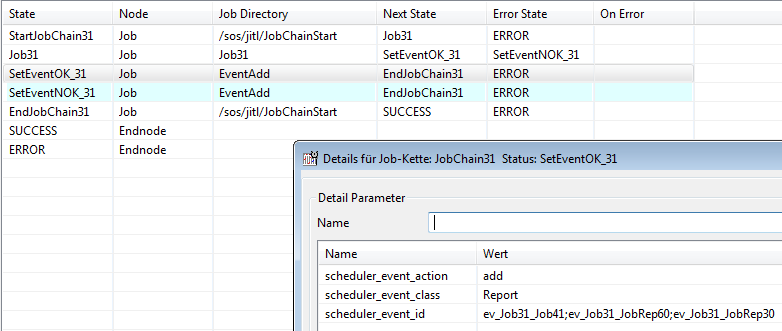THIS PAGE IS 'WORK IN PROGRESS'
Requirements
- The JobScheduler must run using a database.
- Events are stored permanently in the table "SCHEDULER_EVENTS".
- The JobScheduler must be installed with the Event-Service (JobChain sos/events/scheduler_event_service)
[[File:Sos-event-service.png]]
Szenario
The following diagram shows the pre-own dependencies:
At the beginning we have two job chains with defined orders. Each job chain contains 4 jobs with 3 of them executed in parallel.
- JobChain10: Job10, Job11, Job12, Job13
- JobChain20: Job20, Job21, Job22, Job23
All other jobs are started by orders that are created from an event handler.
Realisation
Definition of the job chains
Except the jobs in JobChain10 and JobChain20 the jobs are packed seperately into job chains completed by steps for the creation of events. So we have at least 15 job chains.
Setting the events
There is the job EventAdd using the JITL-class sos.scheduler.job.JobSchedulerSubmitEventJob which store the events named in the parameters into the database.
Please notify that the standard configuration monitor is needed as post-processing.
The parameters you will find in the job chains (example:JobChain31)
When Job31 has finished correctly three events are set:
- ev_Job31_Job41
- ev_Job31_JobRep60
- ev_Job31_JobRep30
= Interpretation of the events


